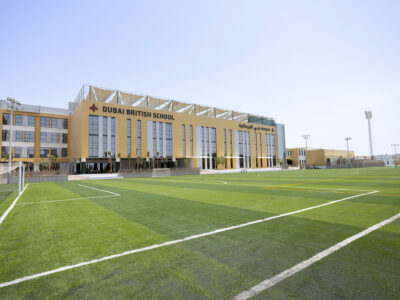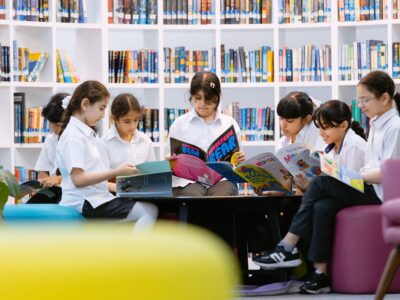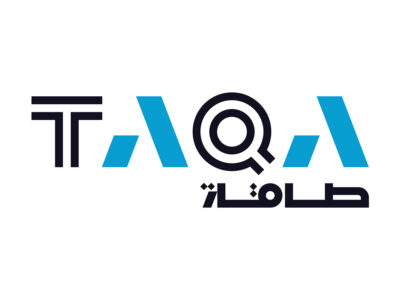
As how to safeguard the warming planet becomes increasingly important, so does preparing the next generation to solve the challenges that climate change will force the world to confront.
Schools are charged with preparing future generations for their role in the world and a few are beginning to implement eco-literacy programs to prepare students to care about protecting the planet and arming them to take greater action than the current generation to save it.
In Dubai, the Arbor School is integrating eco-literacy, or the understanding of the fundamental ecological concepts that will allow us to build sustainable human communities, into the British curriculum that means students graduate with a GCSE-accredited diploma.
“The idea of Arbor [School] is that it’s connected to nature, it’s student-led, it provides students some element of freedom of choice and is really focused on sustainability,” Brett Girven, the principal at Arbor School, told Arabian Business.
Through giving students greater freedom to curate their curriculum, Girven said he wants to instil a greater sense of passion, purpose and agency for change.
The need to change is greater than ever. The global climate conference COP26 wrapped in Glasgow, and while new climate goals have been set, experts have warned that they’re not enough to stop climate change.
With rising sea levels and swathes of the planet likely to be uninhabitable in the next century, future generations will face entirely new problems, and they must be equipped to tackle those challenges. That begins with teaching them about the severity of these issues in schools and arming them with the skills and tools needed to grapple with these increasingly complex issues.
“[In schools], we’re actually lagging behind the change that we see in society,” Girven said. “What we need is a transformational change where our worldview has changed from anthropocentric humans at the centre to eco-centric… and you have to do that, over a long time, progressively and deliberately.”
To create this kind of curriculum though, “there’s no roadmap,” Girven said. While the diploma is in line with British standards, and they have turned to the United Nations’ sustainable development goals (SDGs) for guidance and existing guidelines for developing eco-literacy, the novel type of education lacks any overarching frameworks.
“Globally, there’s a move to ensure sustainability fits within national curriculums in some countries, but it’s still not mandated in many places,” added Girven.












